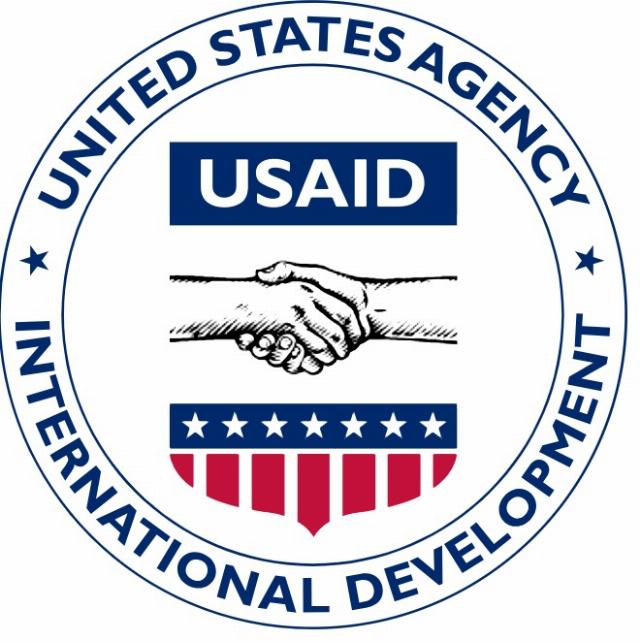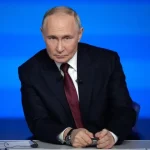

USAID
There is far more international travel, cross-border business, and migration than anytime in history, yet the world has cycled back to its default mode of Great Power competition.The U.S. House Foreign Affairs Committee held its first hearing of the new Congress exercising its oversight responsibilities in regard to the behavior of U.S. Agency for International Development (USAID). My last post in Washington was to serve on the staff of the HFAC. I saw firsthand many USAID programs and found them to be a mixed bag. Some were useful, some were irrelevant except to special interest groups, and some were counterproductive. The perverted identity politics that have headlined the USAID controversy fit the second and third cases, offending the moral values of foreign countries as well as our own. But allowing USAID to only work on expensive Green programs when a major developmental obstacle in most countries is high energy costs was not helpful. It put us at a competitive disadvantage to the Chinese whose aggressive aid and investment programs focus on practical results.
Claims by so-called “progressives” like Rep. Gregory Meeks (D-NY), Ranking Member of the HFAC, that reforming USAID will undermine national security are not credible. Progressives do not have national security as a core concern; indeed, they usually call for resources devoted to defense to be shifted to social programs. Also, the issue is that USAID has not been focused on national security, and that foreign aid efforts need to be realigned with a broader national strategy in world affairs.
When speaking to the press in El Salvador on February 3, Secretary of State Marco Rubio said the “functions of USAID must align with US foreign policy” and that it has become “a completely unresponsive agency.” It is not just the policies or personnel that need changing, but the very concept upon which USAID was based. The idea was that here were some issues so important to the world that they needed to be pursued on their own merits outside the bounds of national interests. They deserved their own independent organizations, free of the traditional cabinet departments of State and Defense where geopolitical strategy would confine their efforts to create a new liberal order that could transcend such concerns.
USAID was one of three such organizations established by President John F. Kennedy. USAID was to spread economic development in the Third World, uplifting millions. An outpouring of humanitarian good deeds. The Arms Control and Disarmament Agency was also started in 1961, its functions were taken out of the State Department and expanded to shift nuclear weapons from the realm of military strategy (even deterrence) to a dustbin where they were to be reduced and hopefully eliminated. The third agency was founded the next year, the Office of the U.S. Trade Representative. Its duties were also taken from the State department. Its mission was to promote “free trade” which in accord with classical liberal theory would boost the global economy. This was pushed by Big Business ,which did not want their decisions on where to build factories, source materials, or create jobs to be based on higher political considerations. If “trading with the enemy” made commercial sense (i.e., looked profitable) who cared about the impact on the balance of power or vulnerability of supply chains? Liberal theory held that the interdependence created by “free trade” would make war impossible. People would learn to cooperate and live as neighbors in a global shopping mall.
<img alt captext="USAID” class=”post-image-right” src=”https://conservativenewsbriefing.com/wp-content/uploads/2025/02/the-illegitimacy-of-post-national-institutions.jpg” width=”400″>In a global economy, trade balances between nations do not matter. For liberals, the U.S. trade deficit is not just acceptable but to be embraced as a way to transfer wealth to other countries to help them develop. This use of “trade as aid” is explicitly part of most U.S. trade agreements which have widened, not closed, trade deficits. According to liberal trade theory, it is impossible for nations to improve performance by devising advantageous policies. Private actors will always generate superior global growth and efficiency. But in the real world, where productive assets are located makes for critical strategic outcomes. In the contest between nations, relative gains confer national advantages over rivals. A single “world market” cannot exist in a politically divided world. It matters that the world’s largest shipyards are in China and not the U.S. Governments must monitor, influence, and if need be, directly control trade and investment because it matters at an existential level where things are made. Beijing has operated on this principle and has become “the workshop of the world” with a death grip on supply chains in many strategic industries. With the exception of President Trump’s first term and the carryover of some of its policies (unacknowledged) by President Biden, every American administration since President Reagan has ignored the requirements of economic warfare because liberal theorists rejected such concerns as unenlightened.
The utopian “one world” ideology goes back centuries. Its latest period of destructive influence was called “globalization.” A more accurate term used in academic circles has been “post-national.” The hope in liberal-Left circles has long been that the nation-state dissolve, eroded from within (below) by class, racial, and other sub-identities that would render unity impossible. In extreme libertarian circles, the individual would be “sovereign” and owe no loyalty to anyone but himself (neighbors lock your doors). Sub-groups would form new alliances on a world basis — workers of the world unite! The nation-state would also be overruled by the formation of world governing bodies such as the United Nations, the International Criminal Court, and the World Trade Organization, making it impossible for national governments even in democratic societies to pursue their own policies.
Consider one of the most extreme proposals to cross my desk, a plan that only a totalitarian world state empowered by AI technology could impose: the transplant of every person from their home country to another country, chosen on the basis of how different it was, for a period of time to promote “understanding.” The outcome of such a program is likely to be the opposite of what these naive ideologues expect. I’ve been fortunate to travel the world as a scholar, journalist, government agent, and tourist. It is a great experience, but the result has been to confirm how much better life is here, the lead nation in the leading civilization of the modern world. In the real world, familiarity often breeds contempt. And it certainly does not reduce the conflicts of interest that drive our contentious world.
There is far more international travel, cross-border business, and migration than anytime in history, yet the world has cycled back to its default mode of Great Power competition.
President Donald Trump named Secretary Rubio Director of USAID, a step towards folding its duties back into the State Department where they belong. Rich and powerful nations have used foreign aid throughout history to advance their interests by building partnerships with allies and aligning other nations with their strategic goals. If you work with America, you benefit, if you do not work with or work against America, you will suffer a disadvantage.
Aid is not welfare; it is an investment to be tied to and managed to generate a return to the U.S. It can be a force multiplier, as when the British kept the Prussian and Austrian armies in the field against Napoleon with “guineas and gunpowder,” or as China is doing today with its Belt and Road program which builds ports and airfields, mines essential minerals, and creates infrastructure around the world to meet not just local needs, but its own strategic ambitions. It is not that we have spent too much of foreign aid, but that it has been spent on the wrong things, often very wrong things, by people who do not think in terms of America First. The proper aim of U.S. foreign policy is to shape the world to our benefit.
William R. Hawkins is a former economics professor who has worked for conservative think tanks and on the Republican staff of the U.S. House Foreign Affairs Committee. He has written widely on international economics and national security issues for both professional and popular publications including for the Army War College, the U.S. Naval Institute, and the National Defense University, among others.
Image: USAID





